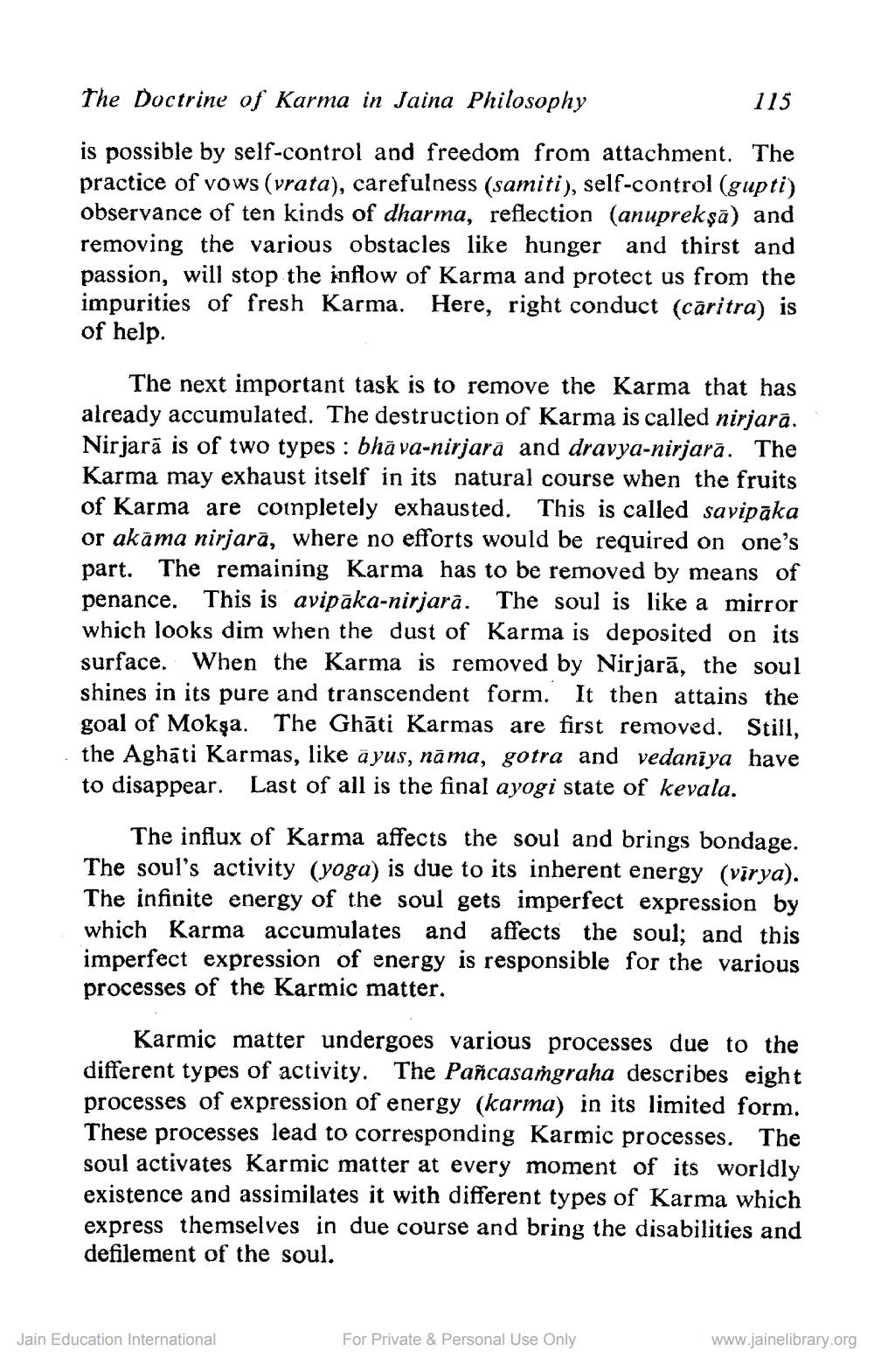________________
The Doctrine of Karma in Jaina Philosophy
115
is possible by self-control and freedom from attachment. The practice of vows (vrata), carefulness (samiti), self-control (gupti) observance of ten kinds of dharma, reflection (anuprekşā) and removing the various obstacles like hunger and thirst and passion, will stop the inflow of Karma and protect us from the impurities of fresh Karma. Here, right conduct (caritra) is of help.
The next important task is to remove the Karma that has already accumulated. The destruction of Karma is called nirjarā. Nirjarā is of two types : bhāva-nirjara and dravya-nirjara. The Karma may exhaust itself in its natural course when the fruits of Karma are coinpletely exhausted. This is called savipaka or akāma nirjarā, where no efforts would be required on one's part. The remaining Karma has to be removed by means of penance. This is avipaka-nirjarà. The soul is like a mirror which looks dim when the dust of Karma is deposited on its surface. When the Karma is removed by Nirjarā, the soul shines in its pure and transcendent form. It then attains the goal of Mokşa. The Ghāti Karmas are first removed. Still, the Aghāti Karmas, like ayus, nāma, gotra and vedaniya have to disappear. Last of all is the final ayogi state of kevala.
The influx of Karma affects the soul and brings bondage. The soul's activity (yoga) is due to its inherent energy (virya). The infinite energy of the soul gets imperfect expression by which Karma accumulates and affects the soul; and this imperfect expression of energy is responsible for the various processes of the Karmic matter.
Karmic matter undergoes various processes due to the different types of activity. The Pañcasamgraha describes eight processes of expression of energy (karma) in its limited form. These processes lead to corresponding Karmic processes. The soul activates Karmic matter at every moment of its worldly existence and assimilates it with different types of Karma which express themselves in due course and bring the disabilities and defilement of the soul.
Jain Education International
For Private & Personal Use Only
www.jainelibrary.org




